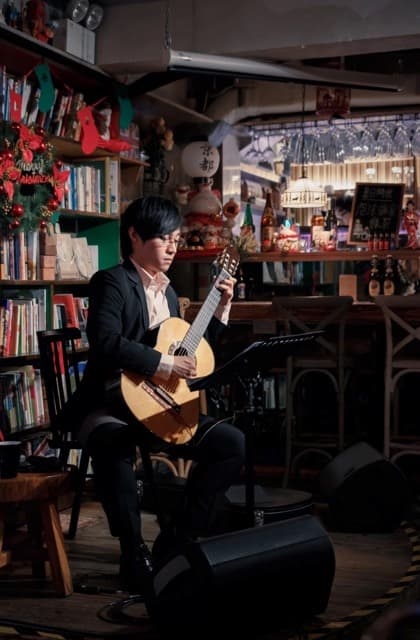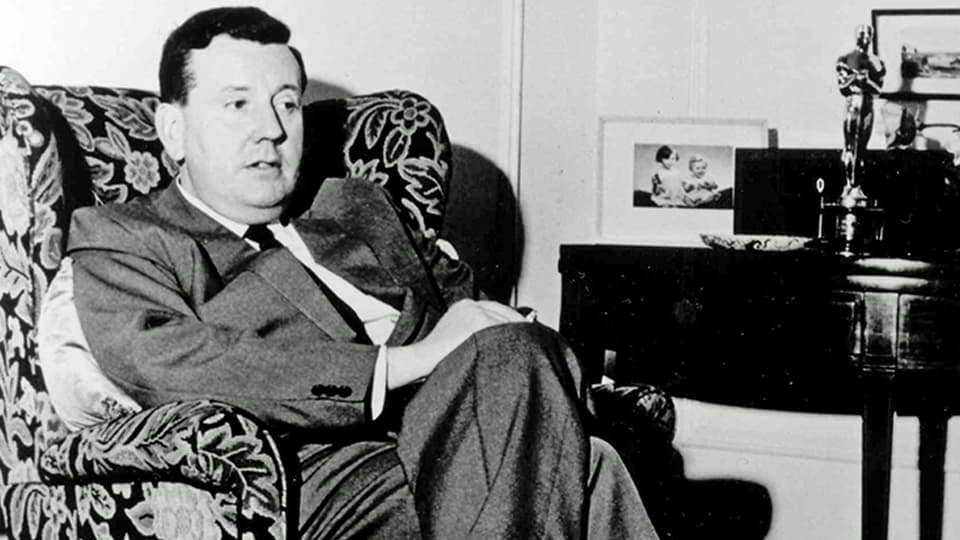Meet Kenneth Kam, a Hong Kong-born classical guitarist, lutenist, researcher, and educator who lives in Rochester, New York. Kenneth and I met when we studied at Hong Kong Baptist University. In this interview, we will learn about Kenneth as a musician and a dad of a 2-year-old, and he will also tell us about his research on Malcolm Arnold and his works.
Máximo Diego Pujol: Verde Alma
Hi Kenneth, would you like to introduce yourself to our readers?

Kenneth Kam
Hello, I am Kenneth Kam. I am a guitarist and lutenist based in Rochester, New York. I am originally from Hong Kong. I am on the music faculty at the Penfield Guitar School, Nazareth University, and the State University of New York Brockport (SUNY Brockport). I direct the guitar ensemble and the university-community orchestra at SUNY Brockport. I am also the contributing editor to Soundboard, the quarterly journal published by the Guitar Foundation of America.
What made you take classical guitar as your primary instrument? Were you influenced by your father, the founder and director of the Hong Kong Guitar Ensemble? Was your dad your first guitar teacher?
Jose Ferrer: Ejercicio No.2 from “Colección 12a de Ejercicios” performed by the young Kenneth Kam
Yes, indeed! My father made a huge impact on me. He first taught me to play the guitar when I was very young. I don’t exactly remember how old I was when I started, but I must have been around 6-7 years old back in the 90s.
Francisco Tarrega: Recuerdos de la Alhambra (soloist: John Kam, Kenneth Kam’s dad)
To give you a little bit of background information about the Hong Kong Guitar Ensemble (HKGE), the group started back in 1987. The members are usually students of my father at different institutions and universities. The HKGE would meet in the evening on Saturdays for its regular weekly rehearsal. I remember I would follow my dad (and my elder sister!) to attend rehearsals at the Hong Kong Cultural Centre in Tsim Sha Tsui, Hong Kong. It was a lot of fun, especially playing the guitar and making music with other people. I learned a lot from playing in an ensemble setting.

Malcolm Arnold © cornishstory.com
You are active in the classical guitar world. Your recent publication, the Guitar Works of Malcolm Arnold, explores the works of this British composer. Would you like to summarize and introduce us to one or two pieces he wrote?
Malcolm Arnold: Guitar Concerto Op. 67, 3rd Movement, performed by Julian Bream in 1963
Sure! I was lucky to be approached by the Malcolm Arnold Society in the UK to research Malcolm Arnold’s guitar works. The research has recently been published as a chapter in the book titled “A Malcolm Arnold Musical Companion.” Malcolm Arnold is no stranger to classical guitarists. He is known for writing a guitar concerto, a solo guitar work, and a serenade for guitar and strings. There is also a less-known piece Arnold wrote for the guitar and the flute, which is a didactic short piece written for Arnold’s children.
Serenade for Guitar and Strings Op. 50 performed by John Williams and the English Chamber Orchestra conducted by Sir Charles Groves
I will share an interesting background story about the Serenade for Guitar and Strings Op. 50 (1955) here. Back in time in the Spring of 1955, the famous virtuoso Julian Bream was engaged to play with the Richmond Community Orchestra, which was led by Arnold’s wife. They requested a work for guitar and string orchestra. Arnold heard the predicament that Bream was not aware of a single piece for guitar and strings. He telephoned Bream and offered to write him a piece for the occasion. It didn’t take long for Arnold to complete the Serenade. This piece cemented Arnold and Bream’s friendship, which flourished for many years and led to several collaborations thereafter.
You are also a lutenist, in addition to playing the guitar. I am unfamiliar with lutes; can you tell us the main difference between a lute and a guitar? While many pieces were originally written for the lute but are arranged for the guitar today, are there any pieces for which you prefer the sound of the lute over the sound of the guitar?
John Johnson: The Queen’s Treble, performed by Kenneth Kam and João Raone
The lute and the guitar can be thought of as sharing a similar relationship between the harpsichord and modern piano. The lute is really a period instrument. There are different types of lutes, such as the Renaissance lute and the Baroque lute. The Renaissance lute was known as the prince of all instruments in the Renaissance period. The timbre, the playing technique, the tablature system (music scores lutenists read), the tunings, the shape of the instrument, the stringing…there are so many differences between a lute and a guitar. I guess the main difference is that the Renaissance lute not only functioned as a solo instrument like the guitar does nowadays but also as a continuo instrument where one has to read the figured bass and provide a supporting bassline with the viola da gamba and the harpsichord.
I wouldn’t necessarily say I prefer the sound of the lute over the sound of the guitar. It really depends on the music and the context. If the music was initially written for the lute, I am more curious to hear the composer’s original intent and sound than on a modern guitar. However, if a guitarist would like to play some lute music on the guitar, paying attention to the lute aesthetics and imitating the timbre of the lute, I have no problem with that. After all, the lute is like a great-grandfather to the guitar. They are relatives!
As a scholar, educator, and performer in this music world, how do you balance your life with performing, researching, and teaching?
This is a very good question. I don’t know. I simply don’t know. There are so many great musicians out there in the 21st century. The competition is real. It seems like we are expected to be able to do everything and be there 24-7 non-stop. There is always work out there waiting to be finished. There is always more to do to make things better. I bet a lot of musicians share the same feeling with me. I also have a guilty feeling towards myself whenever I pause and simply do not do anything. I feel like if I take a break, I am not going to be as competitive as others. I guess I have to learn how to organize my time better so that I can balance my life with work. However, sometimes I do procrastinate. That’s something I’ll have to work on…. Needless to say, I have another job at home – a full-time dad of a 2-year-old!
Do you play other instruments besides the guitar and the lute?
I do play the ukulele and the piano. When I was young, my father also taught me to play the piano alongside the guitar. I took part in the piano exam by the Associated Board of Royal Schools of Music, just like other instrumentalists in Hong Kong. I also tried to pick up a little bit of the violin because I direct the SUNY Brockport University-Community Orchestra. It is not as easy as I thought!
Learn more about Kenneth Kam.
For more of the best in classical music, sign up for our E-Newsletter




